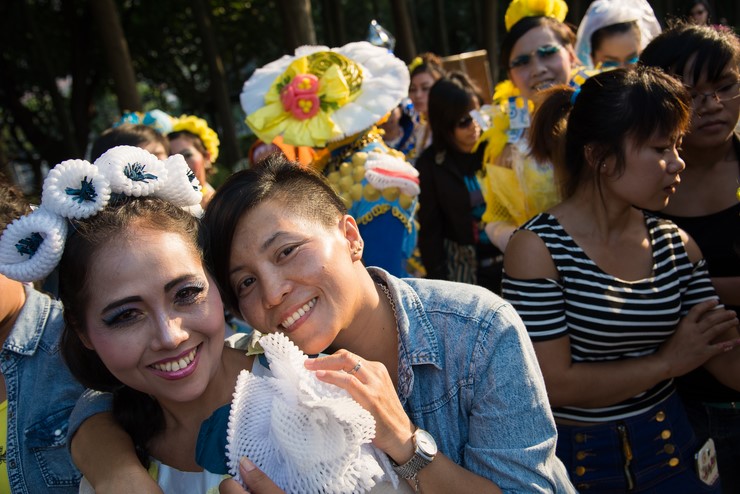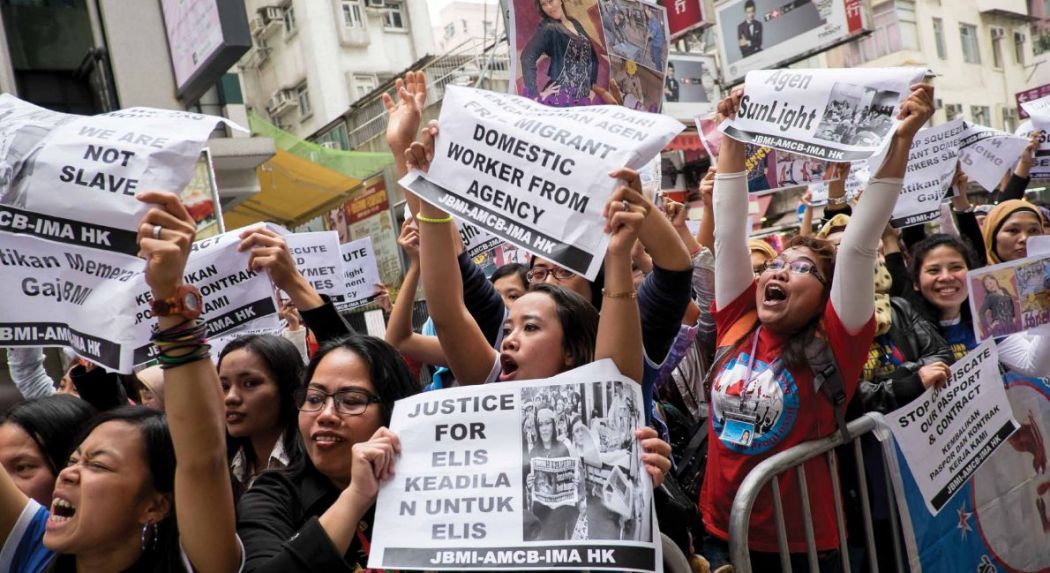“Oh would some Power the gift give us, to see ourselves as others see us,” sang the poet, or at least that was what he meant. The poet was Robert Burns and the original is in Scottish.
It is not relevant, but I cannot here pass unnoted that the poem from which this phrase comes is called “To A Louse, On Seeing One on a Lady’s Bonnet at Church”, which is an unusual source of artistic inspiration.
The sentiment has become, at a personal level, technically obsolete. Everyone can now see videos of themselves, if they wish. If these videos are shared on social media they may provoke a great deal of comment indicating very accurately what “others” see in them.

More complicated variations on “us” – our city, our country – remain elusive. Usually there is, as Kahneman puts it, an inside view and an outside view. Generally we prefer the inside view. I confess to a certain scepticism about Hong Kong books written by visitors, however careful their research.
But sometimes the outside view offers insights which insiders seem to miss. Everyone outside the US knows, for example, that American gun laws are crazy. This is a complex issue, for Americans. Nobody else has a problem with it.
Similarly, from a distance Brexit is clearly a stupid idea. No responsible government should have held a referendum because that implied by its very existence that going or staying were two equally viable alternatives. British politicians have to pretend otherwise.
Locally outsiders who are free to make their own minds up invariably note that Hong Kong’s autonomy is wilting, a development which many of our fellow-citizens either do not see or do not mind. Sometimes the view from a distance is clearer.
This brings me to a programme I was watching the other night on DW, which is the international channel run by Germany’s national broadcaster.

The programme was a documentary about the situation of Filipino domestic helpers in Hong Kong. It started in the Philippines, where we saw the doings of an employment agency run by a memorably obnoxious Hong Kong gentleman.
Apparently he refuses most of the people who apply. Those who are accepted must pass tests, some of which were rather alarming.
“What is the most important quality of a domestic helper?”
“Um, obedience?”
“Good.”
One lady was firmly told she was “too fat to go to Hong Kong,” which was a bit rich coming from the agent, who was no sylph himself.
The filmmakers then came to Hong Kong, pointing out as they did so that Filipino ladies making the same journey did so with a large burden of debt.
They ran through the usual indignities: the “live in” rule, the “two weeks” rule, the frequent absence of the accommodation and other amenities specified in the contract, and the spectacular abuses which surface in the courts.
They interviewed several ladies who had taken refuge in a home which takes in those who are in dispute with their employers. Disputes with your employer are not something to be undertaken lightly because the Labour Tribunal takes its time in such matters and meanwhile the employee with a gripe cannot work for anyone else. Which means she has no income. At all.
DW did – this was a serious enterprise – manage to film inside one employer’s home. The employer concerned had nothing to be ashamed of. Many others had apparently refused.

Viewers were led to the conclusion that the condition of overseas domestic helpers in Hong Kong was either slavery or something much closer to it than it should be. That is, I fear, the outside view.
The inside view? Well, just as many Americans can honestly say that all the gun owners they know are responsible and law-abiding, many Hong Kongers can say with their hand on their heart that all the employers of domestic helpers in their circle are humane and generous. In both cases that doesn’t get us very far.
Of course some employers are OK. The problem is not whether it is possible to be a good employer, but whether it is easy to be a bad one. Some people, for example, think that for their money a helper should be willing to work 16 hours a day, six days a week. Some would extend that to seven.
Employers who are violent, rude, or given to sexual abuse are no doubt in a minority. The question is whether that minority is as minor as it should be.
The indebtedness problem is not our fault. The debts are illegally imposed by employment agencies and loan sharks, usually before the worker comes to Hong Kong. This does, though, put the worker in a vulnerable position. Put simply, she cannot afford to lose the job.
The “live in” rule is a government artifact and it is all our fault. The resident-servant relationship is always fraught. It is said that “no man is a hero to his valet.” Your servant knows things. Folk songs are full of stories in which this syndrome ends in tragedy: the servant betrays the master, the servant betrays the master’s wife’s infidelity, the servant becomes the romantic target of the master’s daughter. Sad stories. Really we are insisting on a recipe for trouble.

Requiring the helper to leave swiftly if fired is a comparatively recent wrinkle on the situation, a shameless sop to employers concerned that dissatisfied workers might move to more desirable situations. Like the rest of us can.
The official line, as recently enunciated, is that changing the live-in rule “will not solve all the problems.” This is true, just as switching to electric buses will not stop global warming. Is that a reason for not doing it?
We seem to have a bit of a head-in-sand problem here: a wilful refusal to recognise that our arrangements for foreign domestic helpers have a dismal effect on the territory’s international reputation. Outsiders who look at the situation are usually appalled.
The rules are not very good. And the ones which would help are not enforced. The government insists on some contract provisions, but makes no effort to see that they are observed in practice. This is left to the most vulnerable party in the contract, and so we find helpers expected to live in dog kennels, broom cupboards, tents in the living room, and so on.
If this is to work, the least that is required is a swift and effective method of resolving disputes, which the Labour Tribunal is not. Mediaeval cities which held fairs used to have what were called Pie Powder courts (believe it or not from the French pieds poudre, meaning dusty feet) which provided a swift service for foreigners who did not wish, and could not be expected, to hang about to wait for justice.
How about an Overseas Employees Court required to resolve at least the more straightforward cases in a week?
